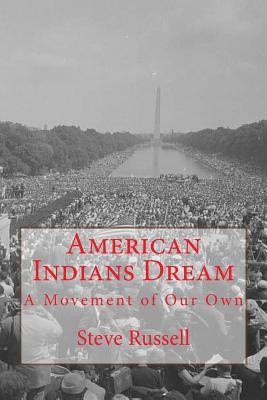
- We will send in 10–14 business days.
- Author: Steve Russell
- Publisher: CreateSpace Independent Publishing Platform
- Year: 2014
- Pages: 56
- ISBN-10: 1499225881
- ISBN-13: 9781499225884
- Format: 15.2 x 22.9 x 0.3 cm, minkšti viršeliai
- Language: English
- SAVE -10% with code: EXTRA
Reviews
Description
August 28, 2013 marked the 50th anniversary of the March on Washington for Jobs and Freedom, where Reverend Martin Luther King, Jr. delivered his iconic "I Have a Dream" speech. Indian Country Today Media Network recognized that anniversary in a series of essays by Cherokee Judge and Professor Steve Russell. Those essays, revised and collected here, examine why American Indians have failed to reap most of the gains of what we now call the mainstream Civil Rights Movement. The question addressed is how American Indians can become instruments of their own liberation rather than spectators to the liberation of others.
- Author: Steve Russell
- Publisher: CreateSpace Independent Publishing Platform
- Year: 2014
- Pages: 56
- ISBN-10: 1499225881
- ISBN-13: 9781499225884
- Format: 15.2 x 22.9 x 0.3 cm, minkšti viršeliai
- Language: English English
August 28, 2013 marked the 50th anniversary of the March on Washington for Jobs and Freedom, where Reverend Martin Luther King, Jr. delivered his iconic "I Have a Dream" speech. Indian Country Today Media Network recognized that anniversary in a series of essays by Cherokee Judge and Professor Steve Russell. Those essays, revised and collected here, examine why American Indians have failed to reap most of the gains of what we now call the mainstream Civil Rights Movement. The question addressed is how American Indians can become instruments of their own liberation rather than spectators to the liberation of others.


Reviews